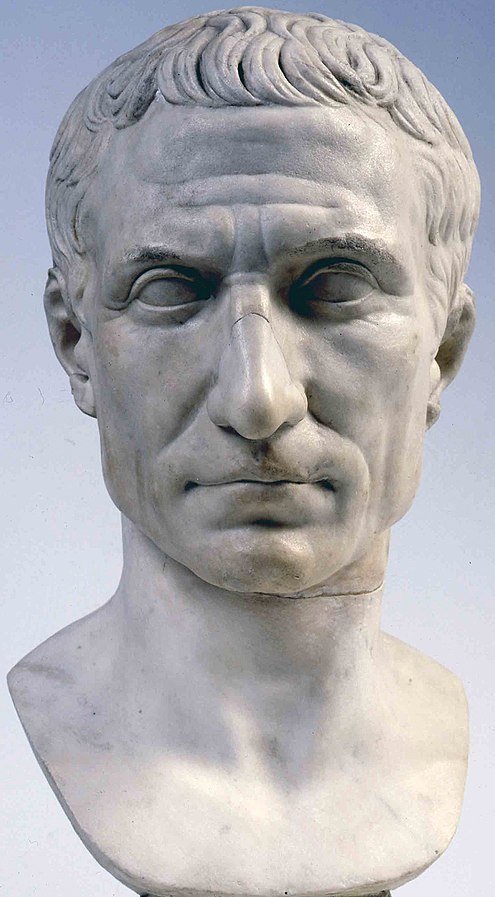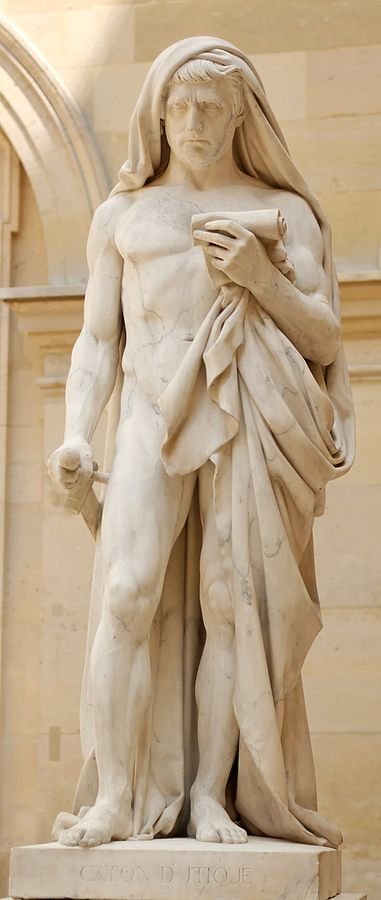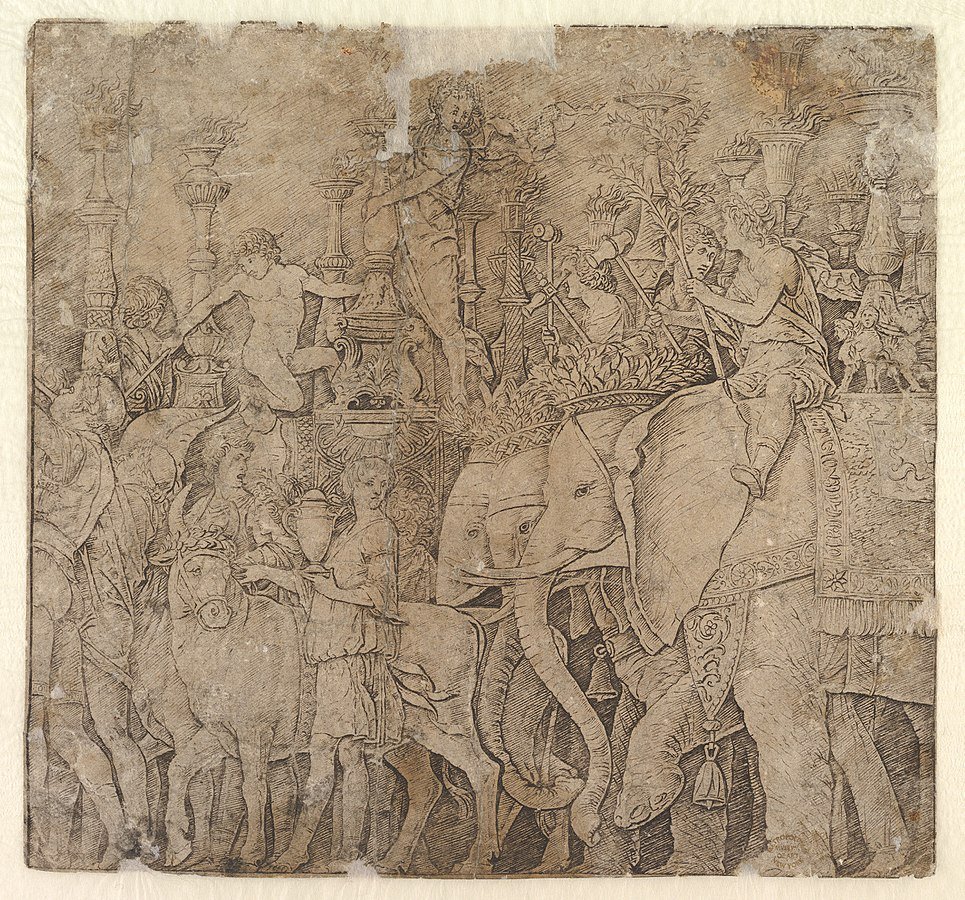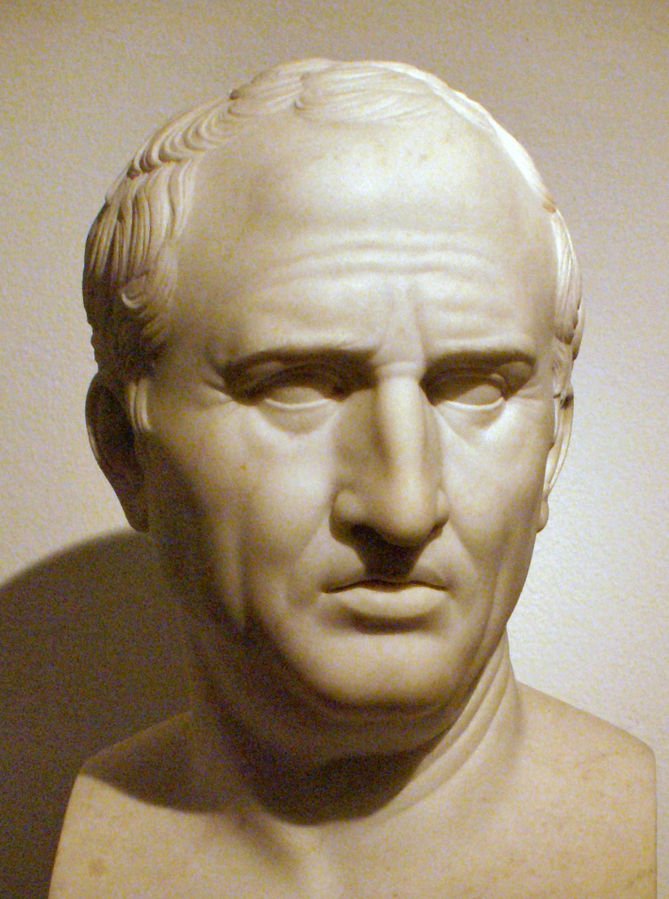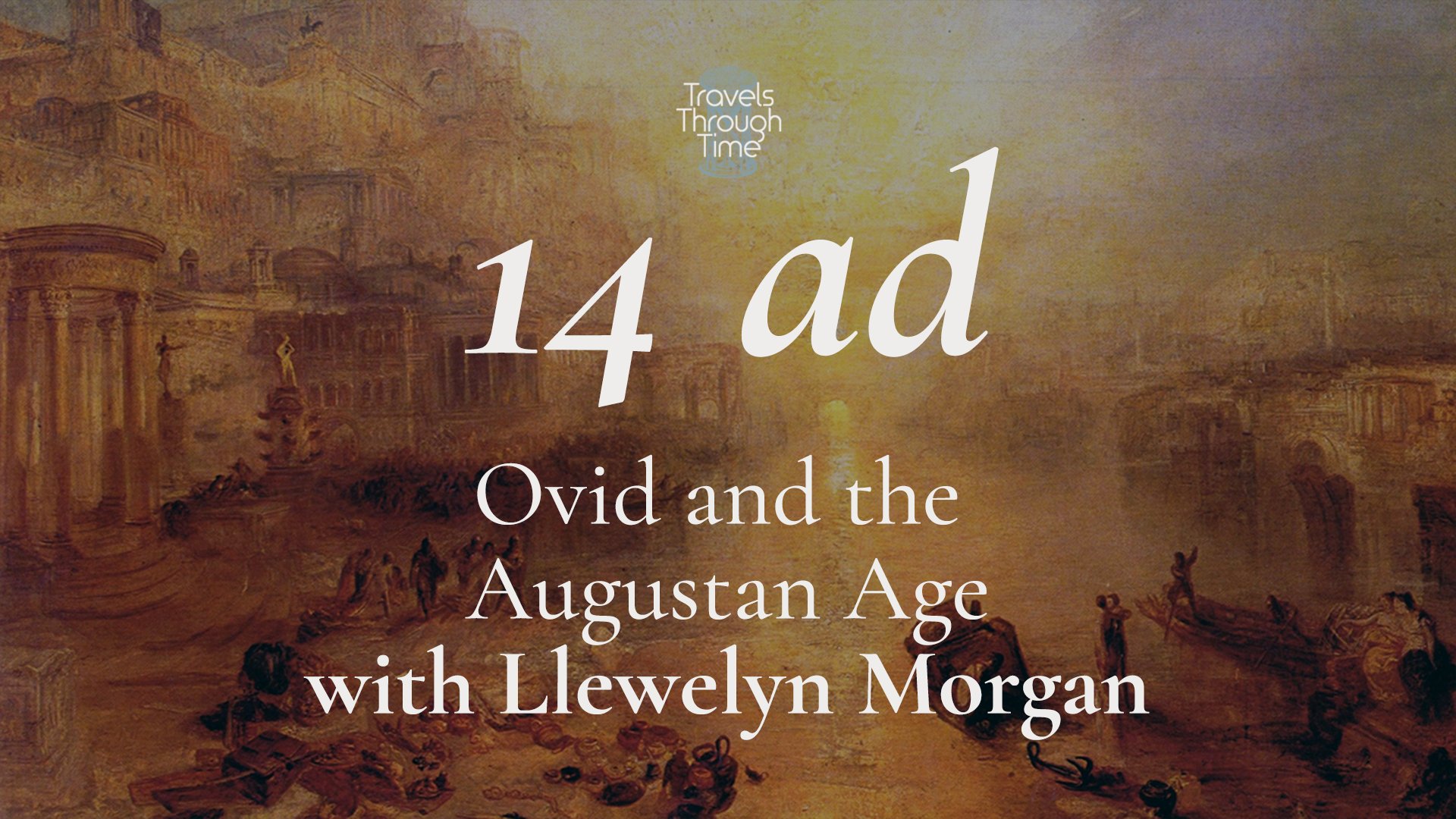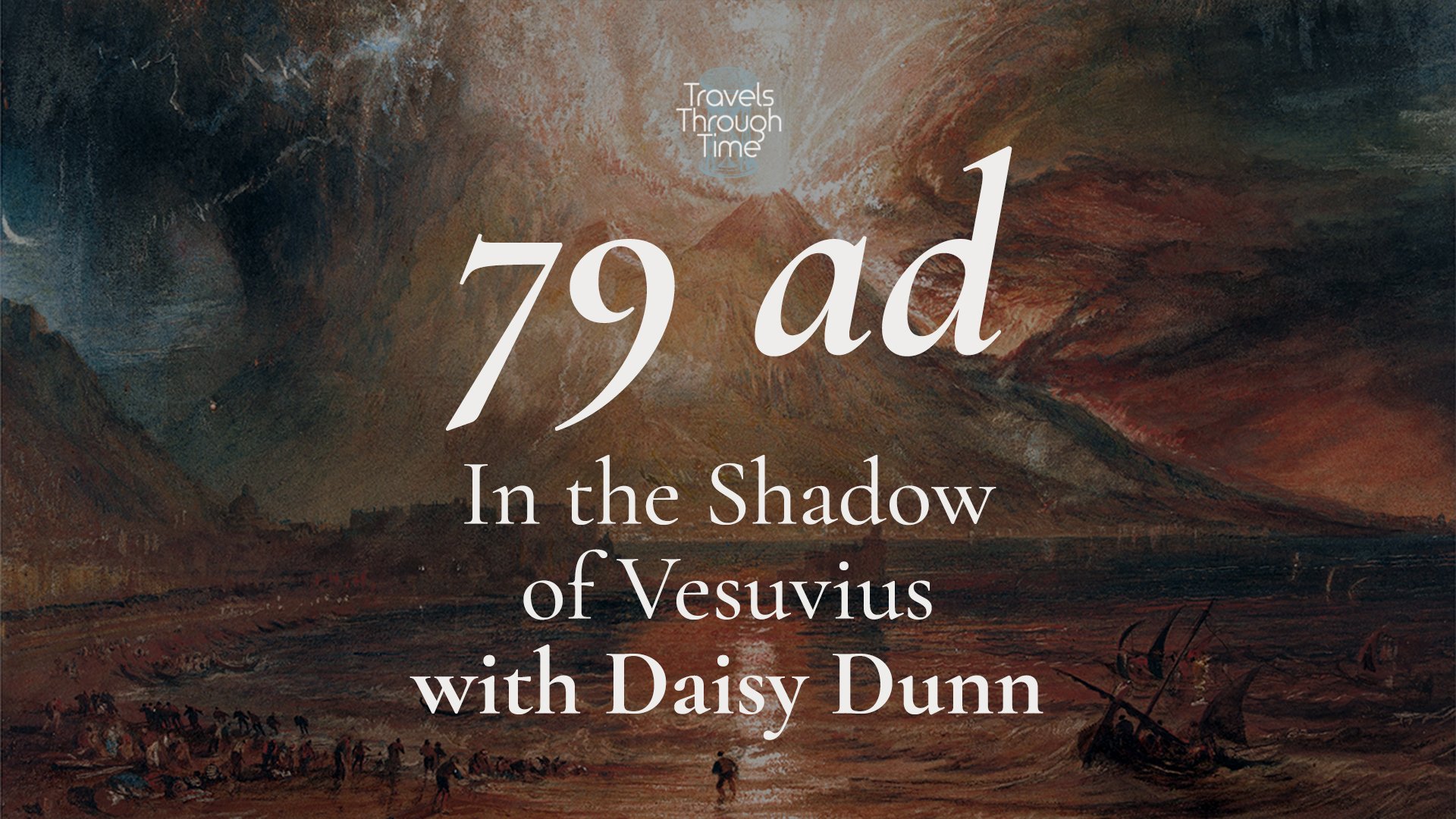Caesar, Cato and the Fall of the Roman Republic: Josiah Osgood (46bc)
Josiah Osgood by Moshe Zusman
The historian Sallust once characterised the Fall of the Roman Empire a tragedy with two heroes. Julius Caesar and his rival Cato the Younger were figures of immense talent. And yet their bitter feuding drove the republic they loved to the very brink. In this episode the award-winning historian Josiah Osgood takes us back to the climatic year of their quarrel: 46 BC.
*** [About our format] ***
As Josiah Osgood observes, there is something ‘delicious’ about the world that Julius Caesar and Cato the Younger knew. This was the world of the late Roman Republic. It was a world of plots and gossip, rivalry and ruthlessness, and few people navigated it with such skill as Caesar and Cato.
These figures belonged to the Roman elite and they came of age in the tempestuous years following Sulla’s Civil War in 83–81 BC. Both of them showed early talent as orators. Caesar made his mark an inspiring speaker with an ability to connect to Romans of all classes. ‘Avoid a strange and unusual word as you would a reef’, he once said. Cato, by contrast, was known for the carrying power of his voice and his ability to speak for hours when required.
Julius Caesar - bust by Andrea di Pietro di Marco Ferrucci (Wiki Commons)
Those who spent time in the Forum in the 70s and 60s BC would soon learn far more. Caesar emerged as an energising force: deeply-ambitious, daring, dashing. Cato was quite different. He was a far more austere figure, who dressed plainly and who carefully curated his image as the advocate for humble virtues. At the time of the Cataline Conspiracy in 63 BC, the two rising political stars became enemies. Over the years that followed theirs would be a rivalry of great personal intensity. It would last for the rest of their lives.
In this episode of Travels Through Time the historian Josiah Osgood tells us much more about these two figures. Where exactly did they come from? How did they inspire their followers? What were their ambitions for the future of Rome? Why did they care so much about their dignitas?
Answers to questions like these lie in Caesar’s epic military campaigns of the 50s as well as Cato’s activities in Rome. But to examine their fates more closely, Osgood takes us back to the year 46 BC. This was a year full of dramatic action that came several years after Caesar had driven Rome into civil war. It began with one of Caesar’s lightning military campaigns in the province of Africa and it ended with glory in a succession of Ceasarian triumphs in the streets of Rome.
But perhaps the most poignant moment of the year belonged to Cato. For in the wake of the Battle of Thapsus in April, Cato took a course of action that would pass into legend in Roman history. And in doing so, Osgood argues, he robbed Caesar of one of the things that he most desired.
***
The characters and stories that feature in this episode of Travels Through Time form part of Osgood’s latest book. Uncommon Wrath: How Caesar and Cato’s Deadly Rivalry Destroyed the Roman Republic is out now.
*** Listen to the podcast ***
Show notes:
Scene One: April 6, 46 BC, the Battle of Thapsus, North Africa.
Scene Two: April 10, 46 BC, Utica, North Africa: Cato’s suicide.
Scene Three: September, 46 BC, Rome, Caesar’s Egyptian triumph.
Memento: The sign that was paraded through the streets of Rome during Caesar’s Asia Minor Triumph with the words ‘Veni, vidi, vici’.
People/Social
Presenter: Peter Moore
Guest: Josiah Osgood
Production: Maria Nolan
Podcast partner: Ace Cultural Tours
Theme music: ‘Love Token’ from the album ‘This Is Us’ By Slava and Leonard Grigoryan
Follow us on Twitter: @tttpodcast_
See where 46 BC fits on our Timeline
About Josiah Osgood
Josiah Osgood is Professor of Classics at Georgetown University, and holds a PhD from Yale University. A winner of the Rome Prize, he is the author of five books on Roman history and the translator and editor of How to Be a Bad Emperor, a 2020 edition of Suetonius's Lives of the Caesars.
The Death of Cato of Utica by Guillaume Guillon Lethière
Plan of the Battle of Thapsus
Listen on YouTube
Complementary episodes
Antony and Cleopatra: Jane Draycott (31/30 BCE)
This week the Roman historian and archaeologist Dr Jane Draycott takes us to meet one of history’s most glamorous and infamous couples, Antony and Cleopatra.
Ovid and the Augustan Age: Llewelyn Morgan (14 AD)
In this episode we return to Ancient Rome and to one of the most glittering moments in its history. After the political drama of the first century BC – the days of Caesar and Pompey the Great, and the fall of the Republic – came the long, rich and expressive Augustan Age. Our guide to this time is the scholar Professor Llewelyn Morgan.
In the Shadow of Vesuvius: Dr Daisy Dunn (79 AD)
Early one afternoon in the year 79 AD, a seventeen year-old boy looked out from the window of his villa across the Bay of Naples. He saw a great cloud, ‘both strange and enormous in appearance’, rising from the top of a hill. This boy was Pliny the Younger. He was about to witness the eruption of Mount Vesuvius.
A Comedy of Terrors: Lindsey Davis (89 AD)
Today we head back almost two thousand years to the rich, rowdy, ruthless Roman world of the Emperor Domitian. This was a time when political intrigue kept those who lived in the Eternal City in a constant state of excitement and unease. Our guide in this fascinating episode is the much-loved novelist Lindsey Davis.




